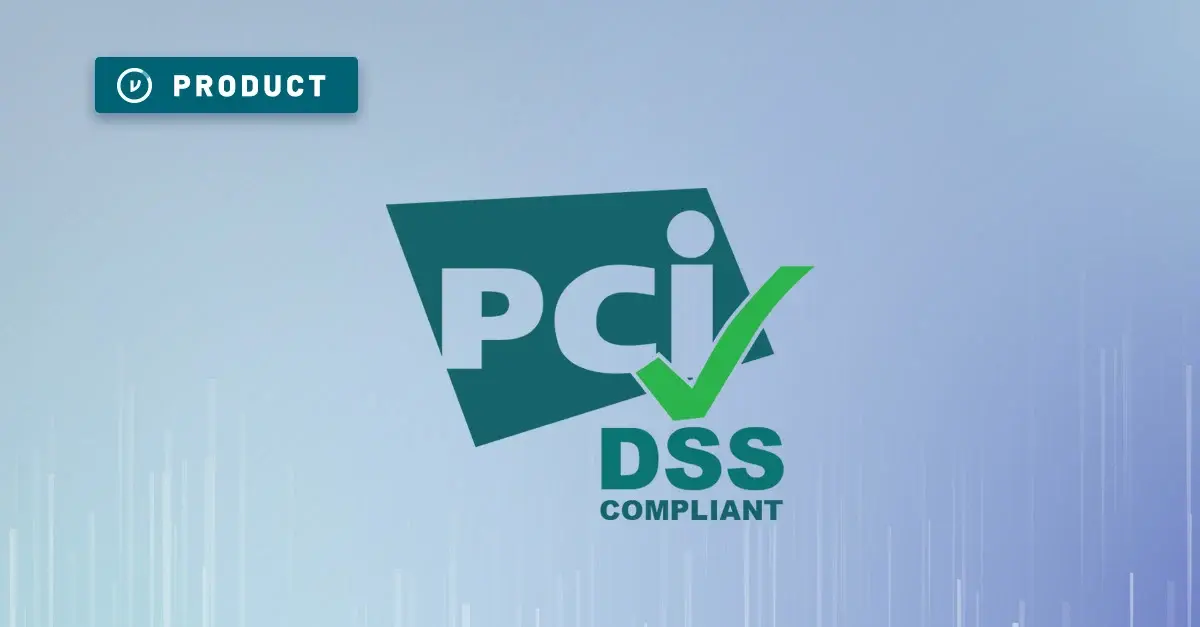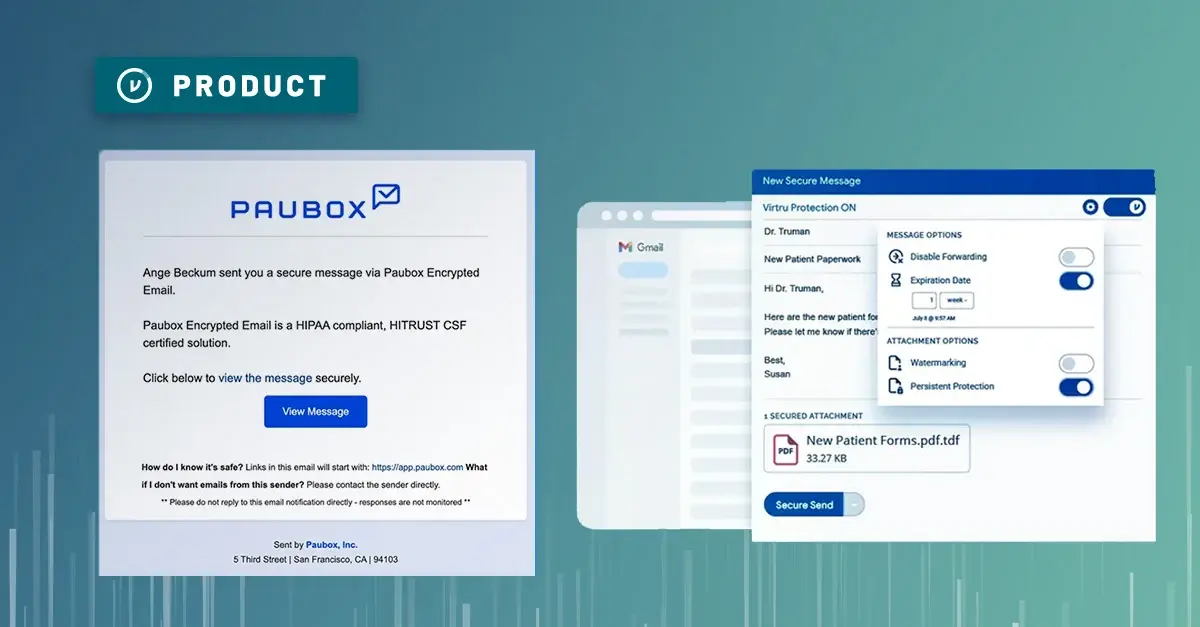What Is a Blind Subpoena, and How Can You Protect Your Data?

It’s always been tough for security leaders to stay ahead of the curve, but the pace has ratcheted up in 2025: Data security regulations are evolving, both at the state and federal level. Flurries of lawsuits and executive orders are in the news every week. And nation-state-sponsored cyber attacks like Salt Typhoon are not letting up.
Among the many digital and legal risks IT leaders face is the blind subpoena. In simple terms, a blind subpoena is a legal request for information that comes with significant challenges — and potentially serious consequences — because it’s issued without revealing all the details of the underlying investigation.
In this post, we’ll explore what a blind subpoena is, why you need to understand it, and how robust encryption practices, such as those enabled by the Virtru Private Keystore, can protect your sensitive data, even in the face of legal demands.
What Is a Blind Subpoena?
A blind subpoena refers to a subpoena issued in a way that keeps certain details — often the investigative context or the identity of one of the parties — hidden from the recipient (or sometimes even from other parties to the case). This method aims to avoid tipping off someone whose knowledge of the subpoena’s full context might lead to evidence being altered, hidden, or destroyed.
In the context of cloud computing, a blind subpoena is a court order or legal demand for a cloud provider (like Microsoft, Google, or AWS) to release a customer's data without notifying the customer.
The concept of “blind” reflects a lack of transparency in the request process. The recipient is compelled to produce data without knowing the investigative context or what other information might be coupled with the subpoena. This creates a situation where companies may be forced to hand over their customers' data without sufficient opportunity to challenge the request or prevent collateral disclosure of unrelated sensitive information.
In the first episode of the Hash It Out podcast, Virtru's Trevor Foskett, Tony Rosales, and Andrew Lynch discuss this topic in the context of privacy-enhanced cloud computing. You can watch or listen to the full episode below.
Why Care About Blind Subpoenas?
Whether your organization is a tech company, a bank, a university, a hospital system, or a state government agency, you rely heavily on digital data to drive operations and maintain trust. Here are a few reasons why blind subpoenas represent a serious issue for decision-makers:
1. Data Oversharing and Exposure
Organizations routinely store data in cloud environments managed by third-party providers like Google, Amazon, and Microsoft. A blind subpoena can compel these providers to turn over what might be a vast amount of sensitive information. If the subpoena is broad in its scope but vague in its explanation, organizations might end up exposing more data than necessary.
2. Compromised Data Sovereignty
Data sovereignty, the authority and control you have over your organization’s data, is a core concept. When a cloud provider is compelled by a blind subpoena to release organizational data, your control over that data can be diminished. Even legal mandates meant to protect national security or uphold law enforcement interests can put your company at risk of providing access to sensitive information without due context.
4. Changing Political and Regulatory Climates
With each change in government administration or shifts in regulatory policies, the interpretation and application of legal orders (including blind subpoenas) can shift dramatically. For organizations that prioritize long-term data security, it becomes imperative to guard sensitive information to maintain long-term data sovereignty against evolving legal pressures.
A Real-World Scenario: When Cloud Providers like Microsoft Receive Law Enforcement Data Requests
Although blind subpoenas are not headline news in the same way as broader surveillance controversies, they do happen. Microsoft, for example, has a page dedicated to Law Enforcement Data Requests. According to the Microsoft Law Enforcement Requests Report 2024, in the first half of the year, it received a total of 219 law enforcement requests for enterprise data (this includes Microsoft accounts with 50 seats or more) related to 419 specific accounts or users. While nearly 85% of those requests resulted in no data being disclosed (either because it did not meet legal requirements, or because no data was found), that leaves just over 15% of requests where some enterprise customer data was handed over to law enforcement. Microsoft notes that it only hands over customer information when it is legally compelled to do so.
Say, for example, that you run a news media company that uses Microsoft 365 for your productivity suite and data management. You may even subscribe to a more expensive enterprise business package to make sure your sensitive data (e.g., reporters’ assignments, confidential sources, story drafts, interview recordings) remains encrypted. But, an important question to ask here is: Does Microsoft host both your content and the encryption keys that unlock it?
If Microsoft has both your encrypted content (e.g., emails, files, communications) and the encryption keys, then there’s nothing stopping Microsoft from turning over your unlocked data to law enforcement should they come knocking on Microsoft’s door with a subpoena. If that subpoena happens to be a blind subpoena, then Microsoft likely cannot notify you about sharing this data. In this case, your data may be shared with law enforcement without your knowledge or permission.
But, if your encrypted data is protected with keys hosted outside of Microsoft? Then, you’re in a much better position.
Host Your Own Keys to Control Data Access
If we carry this scenario through, let's say you use Microsoft as your productivity suite, and you encrypt the information that you store and share in Outlook and OneDrive. But, you use a third-party encryption provider like Virtru to encrypt this data client-side, and you manage your keys separately — on-premises or in a virtual private cloud.
Then, even if Microsoft is compelled to turn over your data, your encrypted information remains protected and inaccessible, because you control your keys to unlock it.
Proactive planning around data security and encryption can mitigate your risk when it comes to blind subpoenas and other legal actions. Here are some high-level steps to consider:
1. Know Where Your Data Lives.
Understanding your data inventory is crucial. Identify where sensitive data is stored, both on-premises and in cloud environments. Ensure you have up-to-date records of data repositories, and know which data is sensitive and subject to potential legal exposure. Be thorough: You might be surprised by the amount of sensitive data accessed and managed by employees across the organization. As an example, a breach of customer data at crypto company Coinbase took hold via customer support team members who had broad access to customer records.
2. Know How — and Where — Your Data Moves.
Evaluate who has access to your data and how it’s being shared. Even the most sophisticated organizations — like defense contractors — need the ability to share information both internally and externally. But it’s vital to ensure sensitive information can only be accessed by the right people, at the right time, under the right circumstances. By tagging your data, governing it with intention, and instituting granular, attribute-based access controls, you can minimize potential overexposure and ensure that your sensitive data remains protected at all stages of its lifecycle.
3. Leverage Encryption and Manage Your Own Keys
Encryption is one of the most effective defenses against unauthorized data access—even under a subpoena. The essential point is that your private encryption keys should be managed separately from your cloud provider. When data is encrypted and only accessible via keys held exclusively by your organization, the risk of handing over decryptable business sensitive data is minimized. When Microsoft hosts your encrypted data, but doesn’t have access to the key to decrypt it, then law enforcement cannot extract the contents, even when the data itself is handed over. Without the key, it's just cipher text: The key is what makes it intelligible.
How Virtru Can Help: Securing Your Data in the Face of Blind Subpoenas
One of the most compelling ways to ensure that your sensitive data remains secure is through the strategic implementation of client-side encryption, at rest and in motion. Virtru offers a powerful defense with the Virtru Private Keystore. Here’s why this solution is critical for organizations concerned about blind subpoenas:
Complete Control Over Encryption Keys
With the Virtru Private Keystore, organizations have the option to host their own encryption keys. You can keep these keys on-premises or within a dedicated virtual private cloud, meaning that even if your cloud provider is forced to comply with a subpoena, the encrypted data they release remains useless without your keys. This extra measure ensures that you maintain control over who gets access to the raw information.
This is why E.U.-based HR tech firm Maki chose Virtru Private Keystore for data stored and shared in Google Cloud. They wanted advanced security to ensure their own customers were protected, so they implemented Virtru Private Keystore as an additional layer of data security. As Benjamin Chino, Chief Product Officer, said:
“The Virtru Private Keystore is super seamless. Everything is running smoothly. From a customer standpoint, it really makes a difference: They now feel that they're much more in control and that Google will not be able to access their data.”
Platform-Agnostic Data Sovereignty
Your organization’s ability to retain data sovereignty—control over your digital assets—has never been more important. Regardless of shifts in governmental administrations or changing regulatory mandates, the assurance that only you hold the decryption keys provides peace of mind. This additional layer of protection ensures that even in adverse legal scenarios, sensitive data remains unreadable to unauthorized third parties.
Virtru Private Keystore supports all Virtru products, and it integrates with both Microsoft 365 and Google Cloud environments, as a SaaS offering or a self-managed solution. Virtru Private Keystore also supports Google CSE (Client-Side Encryption) for Gmail and Workspace.
Broad Industry Adoption
Organizations across the board, from federal agencies and defense contractors to major banks and R1 research universities, turn to Virtru for its robust encryption capabilities. By protecting sensitive content at the source, Virtru not only helps maintain compliance but also upholds the utmost standards of privacy, data security, and confidentiality. This broad adoption is a testament to the effectiveness of having in-house control over encryption keys in today’s complex legal environment.
Data Encryption Is a Zero-Trust Best Practice
Integrating Virtru into your cybersecurity strategy aligns with Zero Trust best practices, ensuring that you are not only addressing operational security issues but also legal challenges. The investment in a solution like Virtru Private Keystore acts as a powerful countermeasure against any future blind subpoena scenarios by laying an added foundation of security—one where data is end-to-end encrypted and can only be decrypted by those with the valid keys.
Stay In Control Of Your Sensitive Data
a data-centric security posture, your organization will be better prepared to navigate both legal challenges and the broader threat landscape with the confidence you’re protecting what’s most important: The data itself.
As organizations adopt more cloud-based technologies and share data across multiple platforms, enforcing strong encryption and retaining direct control over data access becomes critical. This is why strategies focused on data sovereignty and control, such as using Virtru Private Keystore, are wise for maintaining agency over enterprise data.
Blind subpoenas highlight a significant legal gray area where transparency is limited and organizations must navigate murky waters. By understanding what a blind subpoena is, the risks associated with it, and the importance of maintaining robust encryption practices, executive security and IT leaders can better protect their organizations’ critical information.
For more information on how Virtru can help secure your sensitive data and maintain control in the face of legal demands, please contact our team. We'd love to discuss how we can support your data security and data sovereignty strategies.

Megan Leader
Megan is the Director of Brand and Content at Virtru. With a background in journalism and editorial content, she loves telling good stories and making complex subjects approachable. Over the past 15 years, her career has followed her curiosity — from the travel industry, to payments technology, to cybersecurity.
View more posts by Megan LeaderSee Virtru In Action
Sign Up for the Virtru Newsletter

/blog%20-%20HIO%20Maya%20HTT/Maya-HTT-Level-2-lessons%20copy.webp)

/blog%20-%20cmmc%20level%203/CMMC-LEVEL-3.webp)

/blog%20-%207%20Healthcare%20Vulnerabilities/7-hipaa-vulns.webp)
/blog%20-%20please%20delete%20that%20email.%20domain%20wide%20protection/please-delete-that-email.webp)
/blog%20-%20next%20breakfast/next-breakfast-2.png)
/blog%20-%20microsoft%20bitlocker/microsoft-bitlocker.webp)

